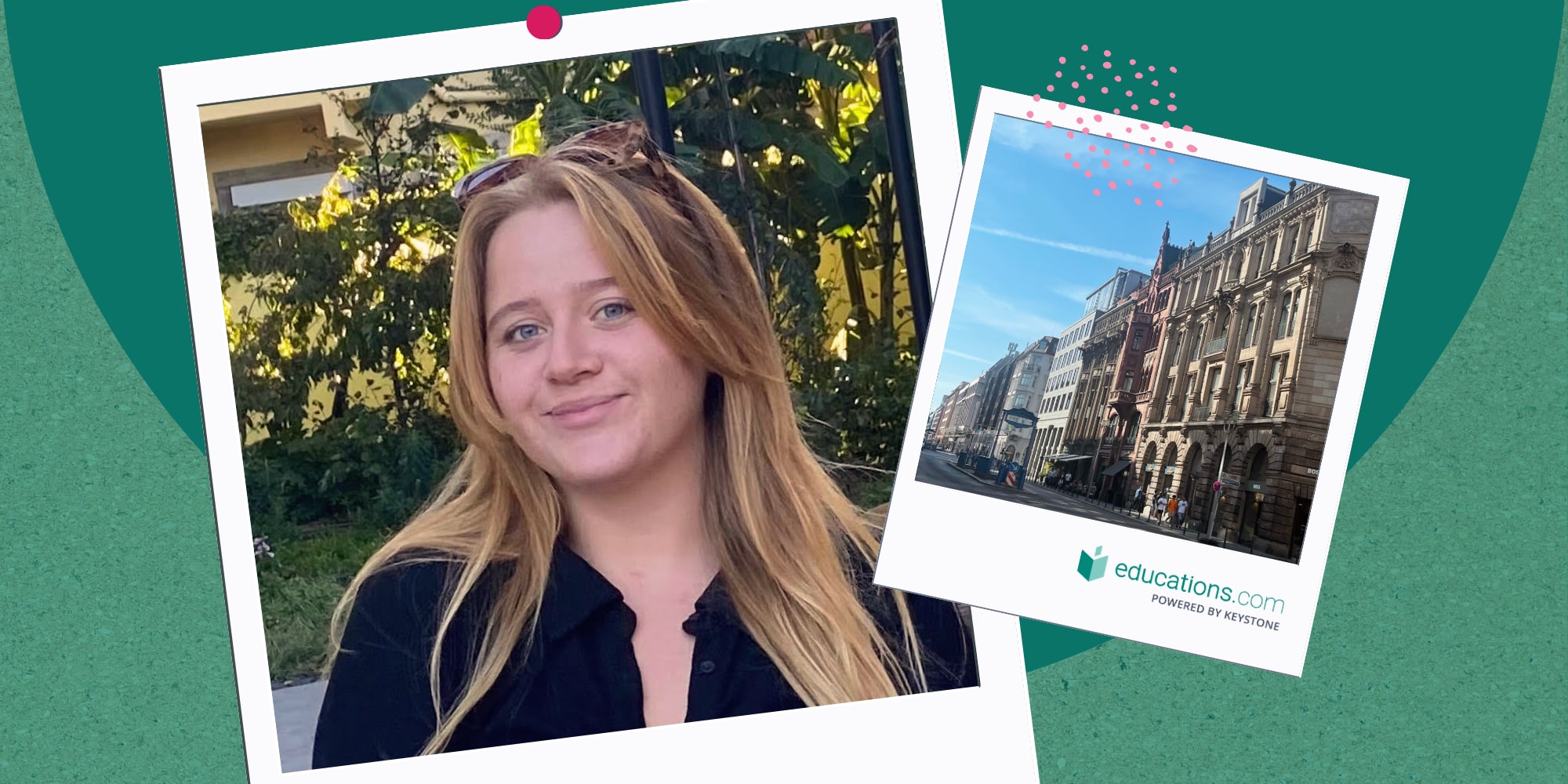6 Tips If You Want to Study in Berlin
Filippa Nyqvist, an international student from Sweden, shares 6 tips for students who want to study in Berlin.
- Deciding Where to Study

Filippa Nyqvist is an international student with a Bachelor's in Politics and International relations. She often shares her study abroad experiences on TikTok.

Below are her tips for prospective international students who want to study in Berlin.
Want to learn more on how to study in Germany?
Check out our Germany country guide for international students!
Tip #1: Bring cash to your study in Berlin
Filippa's first day in Berlin was a quintessential lesson in German practicality – always carry cash.
Berlin is surprisingly traditional when it comes to payments. Don't count on using your credit card everywhere, as many establishments still prefer "Bargeld" (cash). A card might not always suffice, even for something as commonplace as a taxi ride.
Always have enough Euros in your wallet for those quaint shops and local eateries.
Tip #2: Don't be afraid to approach new people
Berlin welcomes international students with open arms, so don't let fear of the language barrier hold you back.
English is widely spoken, especially among the younger crowd. Be bold and reach out to new people; it's a great way to form friendships and immerse yourself in student life.
Tip #3: Understand the bureaucracy
The German love for paperwork and procedures is no myth. This aspect of German culture is deeply ingrained in various facets of daily life, including the processes international students must go through when they decide to study in Berlin.
Here are some things you should expect to do if you're planning to study in Berlin:
- Registration of your address (Anmeldung) with the local citizen's office (Bürgeramt).
- Opening a bank account
- Enrollment in health insurance
All of these require filling out forms accurately and providing a range of documents, including your passport, visa, and housing confirmation.
Whether you're registering your address or setting up a bank account, be prepared to navigate a sea of forms. Patience and organization are key.
Tip #4: Learn basic German phrases
While you can get by with English, knowing some German can go a long way. It shows respect for the local culture and can greatly simplify daily interactions.
Here are some common phrases that you can pick up quickly and easily:
- Danke = Thank you
- Entschuldigung = Excuse me
- Guten Tag = Good day/Hello
- Guten Abend/Nacht = Good evening/night
- Bis bald = See you soon
- Tschüss = Goodbye (informal)
- Ich heiße... = My name is...
Tip #5: Plan your shopping - stores close on Sundays
One of the most noticeable traditions in Berlin, especially for international students used to more flexible shopping hours, is the concept of Ruhetag (rest day) on Sundays.
This means that, with few exceptions, most stores and shopping centers in Berlin close their doors for the day, urging both locals and newcomers alike to slow down and take a break from the hustle and bustle of everyday life.
This tradition might seem inconvenient at first, especially if you're used to doing your grocery shopping on weekends. However, it offers a wonderful opportunity to immerse yourself in the local culture and explore one of Berlin's charming weekly markets, such as Kollwitzplatz in Prenzlauer Berg or the Turkish market along the Maybachufer in Neukölln.
These markets are not only a source for fresh produce but also a vibrant part of Berlin's community life, where people gather to shop, enjoy delicious food, and sometimes even listen to live music.
Tip #6: Act quickly in finding accommodation
For international students planning to study in Berlin, securing accommodation should be at the top of their to-do list for a few reasons:
- High demand for housing: Berlin's popularity as a study destination creates intense competition for affordable student accommodation.
- Bureaucratic processes: The rental process in Berlin involves gathering several documents, which can be time-consuming, especially for international students.
- Student housing options: Universities offer limited dormitories and student apartments that fill up quickly; early application increases chances of securing these accommodations.
- Focus on studies: Securing housing early allows students to concentrate on their studies and adapt to their new environment without the added stress of finding a place to live.
- Early action benefits: Acting swiftly in securing accommodation ensures a smoother transition to studying and living in Berlin, enhancing the overall educational experience.
Berlin is not only the capital city of Germany but also a major hub for education, culture, and innovation, attracting students from all over the world. This high demand for student housing, combined with the city's vibrant population, means that finding a suitable place to live can be quite challenging if not acted upon swiftly.
Conclusion
Studying in Berlin offers a unique blend of cultural immersion and academic excellence but comes with its own set of challenges and opportunities.
To navigate your study experience in Berlin successfully:
- Connect with new people
- Prepare for the bureaucracy by organizing necessary documents
- Learn basic German phrases to show respect for the local culture but also facilitate daily interactions
- Be mindful of the stores closing on Sundays, and plan your purchases accordingly
- Secure accommodation in advance due to high demand and the bureaucratic rental process
Read more about studying abroad in Germany

Author
The Keystone Team is comprised of experienced educators and advisors dedicated to providing valuable resources and advice to students all over the world.
Read related articles

Where Can TOEFL iBT Scores Take You?

Why I Chose to Study Engineering in Austria
